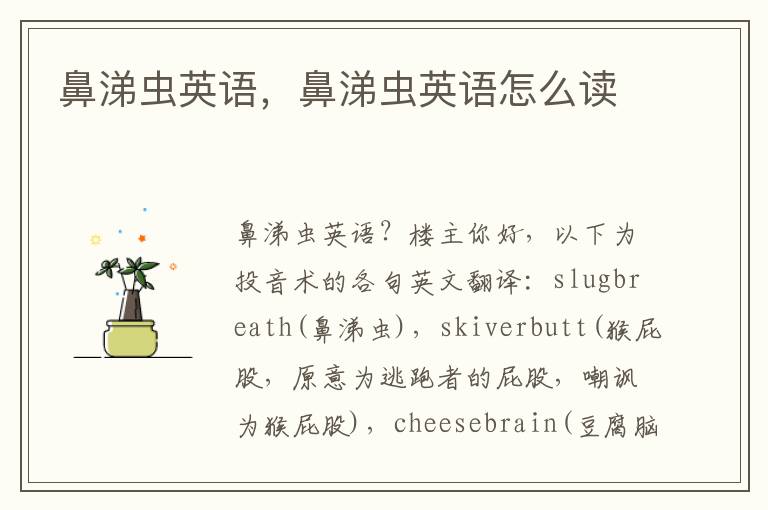【简介】感谢网友“雕龙文库”参与投稿,这里小编给大家分享一些,方便大家学习。
gre阅读难句训练方法中针对省略句应该是考生最希望能得到解决的。省略句主要就是考察考生考虑文章上下意思的一个能力。
1. Hardys weakness derived from his apparent inability to control the comings and goings of these divergent impulses and from his unwillingness to cultivate and sustain the energetic and risky ones.
难句类型:复杂修饰、省略、抽象词
译文:哈代的缺陷一方面缘起于他的某种明显的无能,无法控制好那结不尽相同的创作冲动的穿梭往来;另一方面缘起于他不愿意去培养和维持那些富于生机活力和风险性强的创作冲动。
解释:介词from的宾语有两个并列的部分,由and所连接,在and之后的第二个from前,省略了前面一样的谓语动词derive。本句之所以难,有两个原因,一是derived from 后面的成分太长,初学者难以一下子看下来;二是作为一篇文科文章,用词抽象,难以迅速理解。
意群训练:Hardys weakenss derived from his apparent inability to control the comings and goings of these divergent impulses and from his unwillingness to cultivate and sustain the energyetic and risky ones.
2. Virginia Woolfs provocative statement about her intentions in writing Mrs. Dalloway has regularly been ignored by the critics,since it highlights an aspect of her literary interests very different from the traditional picture of the poetic novelist concerned with examining states of reverie and vision and with following the intricate pathways of individual consciousness.
难句类型:复杂修饰、省略、抽象词
译文:弗吉尼亚.伍尔夫在创作《黛洛维夫人》时有关其创作意图的这番发人深思的陈述,迄今为止一贯为文学评论家们所忽略,因为它突出反映了她诸多文学兴趣中某一方面,而这一方面则与人们对诗性小说家所形成的传统见解大相径庭。所谓的诗性小说家,所关注的是审视想入非非和白日梦幻的诸般状态,并致力于追寻个体意识的通幽曲径。
解释:本句逗号以前只有复杂修饰的长主语有些难,但总的来讲比较好懂,since引导的原因状语从句较难。
A、 since之后的it指前面的statement,highlight的宾语an aspect之后有两个修饰成分,一个是of her literary interests, 另一个是以that引导的定语从句that is very different from the traditional picture of the poetic novelist,都是修饰an aspect的。Novelist后面又有由and 连接的两个介词结构concerned with doing 修饰novelist.
B、 句中有两处省略,一是在her literary interests that is very different from当中,修饰interests的定语从句中引导词+be that is 一起省略了。第二处在and之后,由于concerned with与前面的concerned with重复,所以concerned被省略。
C、 本句另外一个难懂的地方,就是使用了大量的抽象词。这是文学市评论题材的文章的一个特点。
Virginia Woolfs provocative statement about her intentions in writing Mrs. Dalloway has regularly been ignored by the critics,since it highlights an aspect of her literary interests very different from the traditional picture of the poetic novelist concerned with examining states of reverie and vision and with following the intricate pathways of individual consciousness.
gre阅读难句训练方法中针对省略句应该是考生最希望能得到解决的。省略句主要就是考察考生考虑文章上下意思的一个能力。
1. Hardys weakness derived from his apparent inability to control the comings and goings of these divergent impulses and from his unwillingness to cultivate and sustain the energetic and risky ones.
难句类型:复杂修饰、省略、抽象词
译文:哈代的缺陷一方面缘起于他的某种明显的无能,无法控制好那结不尽相同的创作冲动的穿梭往来;另一方面缘起于他不愿意去培养和维持那些富于生机活力和风险性强的创作冲动。
解释:介词from的宾语有两个并列的部分,由and所连接,在and之后的第二个from前,省略了前面一样的谓语动词derive。本句之所以难,有两个原因,一是derived from 后面的成分太长,初学者难以一下子看下来;二是作为一篇文科文章,用词抽象,难以迅速理解。
意群训练:Hardys weakenss derived from his apparent inability to control the comings and goings of these divergent impulses and from his unwillingness to cultivate and sustain the energyetic and risky ones.
2. Virginia Woolfs provocative statement about her intentions in writing Mrs. Dalloway has regularly been ignored by the critics,since it highlights an aspect of her literary interests very different from the traditional picture of the poetic novelist concerned with examining states of reverie and vision and with following the intricate pathways of individual consciousness.
难句类型:复杂修饰、省略、抽象词
译文:弗吉尼亚.伍尔夫在创作《黛洛维夫人》时有关其创作意图的这番发人深思的陈述,迄今为止一贯为文学评论家们所忽略,因为它突出反映了她诸多文学兴趣中某一方面,而这一方面则与人们对诗性小说家所形成的传统见解大相径庭。所谓的诗性小说家,所关注的是审视想入非非和白日梦幻的诸般状态,并致力于追寻个体意识的通幽曲径。
解释:本句逗号以前只有复杂修饰的长主语有些难,但总的来讲比较好懂,since引导的原因状语从句较难。
A、 since之后的it指前面的statement,highlight的宾语an aspect之后有两个修饰成分,一个是of her literary interests, 另一个是以that引导的定语从句that is very different from the traditional picture of the poetic novelist,都是修饰an aspect的。Novelist后面又有由and 连接的两个介词结构concerned with doing 修饰novelist.
B、 句中有两处省略,一是在her literary interests that is very different from当中,修饰interests的定语从句中引导词+be that is 一起省略了。第二处在and之后,由于concerned with与前面的concerned with重复,所以concerned被省略。
C、 本句另外一个难懂的地方,就是使用了大量的抽象词。这是文学市评论题材的文章的一个特点。
Virginia Woolfs provocative statement about her intentions in writing Mrs. Dalloway has regularly been ignored by the critics,since it highlights an aspect of her literary interests very different from the traditional picture of the poetic novelist concerned with examining states of reverie and vision and with following the intricate pathways of individual consciousness.








